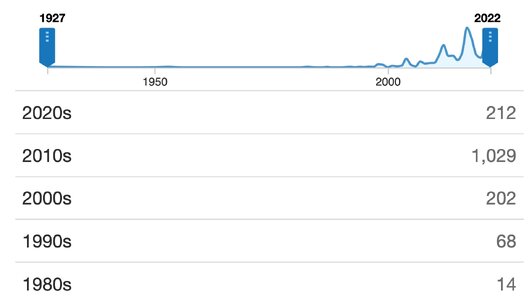We have NOT fallen into obscurity as badly as Indiana or UCLA has fallen the past 25 +/- years.
Indiana and UCLA were always considered Blue Bloods in Basketball. If you don’t agree with that, then you’re probably too young to realize that fact. Perhaps you weren’t born yet when the phrase “basketball blue bloods” came into being.
The first historical mention of “blue bloods” specific to college basketball can be found as early as 1946. (I looked it up and did the research).
Since the late 1980s, college basketball’s “blue bloods” list has always included - in no certain order - UNC, UCLA, Kentucky, Indiana, Kansas, and d00k (which in 1989, somehow made the list before their first NCAA championship).
Other schools mentioned - from time to time between the 1980’s and today - include: Mich. State, Villanova, Gerorgetown, UCONN, Florida, And Louisville. Even Arizona got a mention here and there.
But no one's in charge, of course, so there are no cut-and-dried rules.
The Lexington Herald-Leader's Jerry Tipton, a longtime Kentucky beat writer, knows what a blue blood is, given his proximity to the 'Cats. In 2011, he wrote, "Kentucky, UCLA, Michigan State, Florida ... Basketball blue bloods representing more than 20 national championships are playing in this pod of the NCAA Tournament this week."
Florida's
first national title came in 2006. Sure, another one came a year later, but how do Florida's two championships weigh against Oklahoma State's two from 1945 and 1946, or San Francisco's two from 1955 and 1956?
That's up to the authors of history to decide and history suggests that the notion of blue-blood programs in men's basketball has gained popularity this century, as a way to elevate the haves from the have-nots or to stoke sports-related debate. Below is a graph of the search results for the phrase "basketball blue blood" in newspapers.com's database, showing how rarely the phrase was ever published in newspapers prior to the first national championships won by Duke (1991), Arizona (1997), UConn (1999) or Florida (2006).

While the definition and membership list of men's basketball's blue bloods are in flux, depending on who you ask and when you ask them, whichever 2024/25 NCAA Men's Final Four participant adds a national championship to its trophy case, it may be able to renew its membership application to the sport's club of blue bloods, thanks to a shiny, new trophy.

